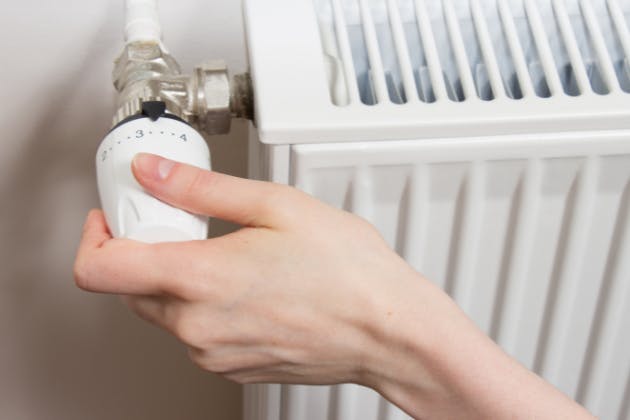FAQS for Maintaining Radiators
If you need boiler service in Leytonstone, Walthamstow, or Woodford, contact us today at 07921705246.

Why do I need to bleed a radiator?
Your heating system is a vital part of your home, providing warmth and comfort all year round. It’s almost constantly in use, providing hot water to your home on-demand and generating heat from the radiator network spread throughout. It’s not uncommon for air to find its way into a system over time, gradually reducing heating performance and creating some unwanted rattling sounds as it travels through your system.
While this typically affects unvented systems more frequently, it can - and will - happen to every home heating system at some point. By not bleeding your radiators, you will lose heating performance in places where the air is trapped, meaning you’ll have to leave the heating running for longer periods to warm your home to your liking. We recommend regularly checking and bleeding your radiators every 6 months at a minimum, most often when winter is approaching, to ensure the best performance. You should also get regular boiler service in Leytonstone, Walthamstow, Woodford, or nearby areas to ensure your boiler’s good health.
When should I bleed my radiators?
We recommend bleeding your radiators if you notice rattling or other unfamiliar noises in your heating pipes. Start by turning on your heating system and allowing it to start warming up your radiators. While they’re warming, listen for any clanking or rumbling sounds - this could very well be pockets of air rushing through your heating system. They will eventually settle once the system heats up, so pay a visit to each radiator in turn to get a quick understanding.
Once they’ve sufficiently heated up, you need to feel the surface of the radiator for any changes in temperature, particularly towards the top of the radiator where the air is likely to end up lodged. If it feels cooler than other parts, you know there is an air pocket there. Please take extra care here as the radiators will be hot, so be sure to use gloves.
Why do I need to bleed my radiators?
Air continuously collects in your heating pipes and radiators, hindering the water from circulating. This results in radiators heating slowly, warming only in parts, or staying completely cold. This impedes the heating power and leads to higher energy consumption. Additionally, the oxygen in the air in the system causes corrosion which can result in leaking and debris in your radiators.
On which position should my radiator thermostat be during bleeding?
Your radiator thermostats should be completely open during the bleeding process. But the heating system itself needs to be switched off.
How long does it take to bleed a radiator?
After switching off your heating, you should wait for one hour and let the pipes and radiators cool down. The bleeding process itself takes approximately five minutes for each radiator.
How often should I bleed my radiators?
It’s recommended to bleed your radiators at least once a year, ideally before the start of the heating season in autumn. Additionally, you should bleed them whenever you notice signs of trapped air, such as uneven heating or unusual noises.
Can wrong bleeding result in serious damage?
If you follow the steps described above, it is perfectly safe to bleed your radiators.
My radiators are still not heating up properly - what should I do now?
After bleeding your radiators, switch your heating back on. Wait an hour and check if all radiators are heating up properly. In some cases, it might be necessary to bleed your radiators again. If this doesn't help, you should contact a professional immediately.
What should I do if bleeding my radiators doesn't solve the problem?
If bleeding your radiators doesn't improve their performance, a more serious issue with your heating system may require professional attention. In this case, it's best to contact a qualified gas engineer in Walthamstow, Leytonstone, Woodford, or other nearby areas, who can diagnose and fix the problem for you.
My radiators are still not heating up properly - what should I do now?
After bleeding your radiators, switch your heating back on. Wait for an hour and check if all radiators are now heating up properly. In some cases it might be necessary to bleed your radiators again. If this doesn't help, we are always happy to answer any questions you may have, so get in touch on our contact page, alternatively, you can phone 07921705246, 0203 488 0883 or email: hello@bealesservices.co.uk

